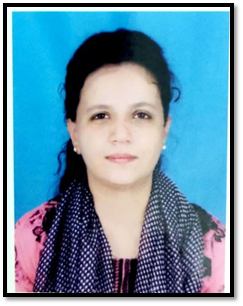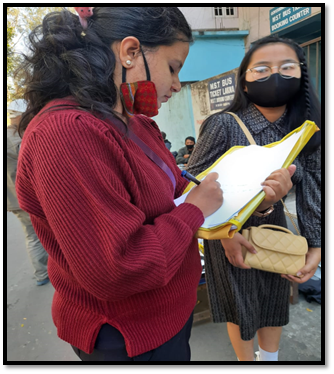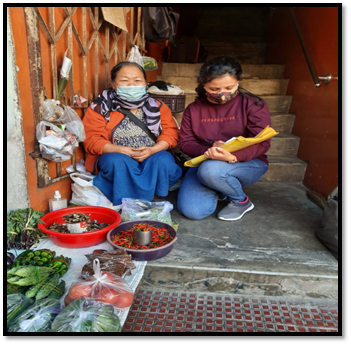Fellowship sponsored by Tribal Affairs Ministry helps Aayushi Lyngwa from Mizoram to achieve new heights
Aayushi Lyngwa, who belongs to Aizawl, Mizoram, was always inclined towards learning more about the travails and possible solutions to the existing issues related to the tribal communities in India in the context of self-employed and informal tribal poor. Ministry of Tribal Affairs sponsored fellowship helped her pursue PhD in the Department of Humanities and Social Sciences on the research project- ‘Street Vending in the Tribal Urban Informal Economy of North-East: A Case Study of Aizawl, Mizoram.’
Aayushi Lyngwa belonged to a poor family and with her retired parents and meagre incomes at home, the road to PhD seemed to be a far reached dream. Nonetheless, she applied for MPhil (Economics) Degree from the Central University of Gujarat and started her journey towards her research. During her MPhil, she received a Fellowship of merely Rs. 5000 a month. It was then that her former supervisor, Prof. Indira Dutta, and colleagues informed and motivated her about the fellowship that meritorious tribals could receive through the Ministry of Tribal Affairs.

She researched a lot for the same and immediately applied for it in 2017. In the same year, she got selected for the Fellowship and several academic opportunities opened up for her to apply for her PhD in reputed institutes like the Indian Institute of Technology in Kharagpur. The grants assisted her in paying the huge fees, hostel expenses, contingencies and other fees. It has also immensely aided her in carrying out her field data research from 2020 to 2021.

She also praises that the administrative and scholarship cell at the Ministry of Tribal Affairs has made accessibility to scholarships easier for aspiring scholars. The grievances portal solved all her queries with fast-track actions/solutions, thus the application process became easier for her with the assistance of the officials of the Ministry of Tribal Affairs through personal communication via conferences and workshops. During the rigorous lockdowns, the MoTA Fellowship continue to ensure them with the grants on time. Her Fellowship has helped her to attain higher goals in her academic landscape and empowered her with confidence and independence. She no longer needed to depend on anybody to fulfil her academic requirements.

In the foreseeable future, she envisions herself working for better solutions and the upliftment of the tribal communities, especially, in the context of informal employment and women empowerment. She is also willing to come forward and mentor other tribal scholars in their academic or research abilities and help them overcome the minute challenges that each scholar faces in their PhD journey and beyond.
******
NB/SK